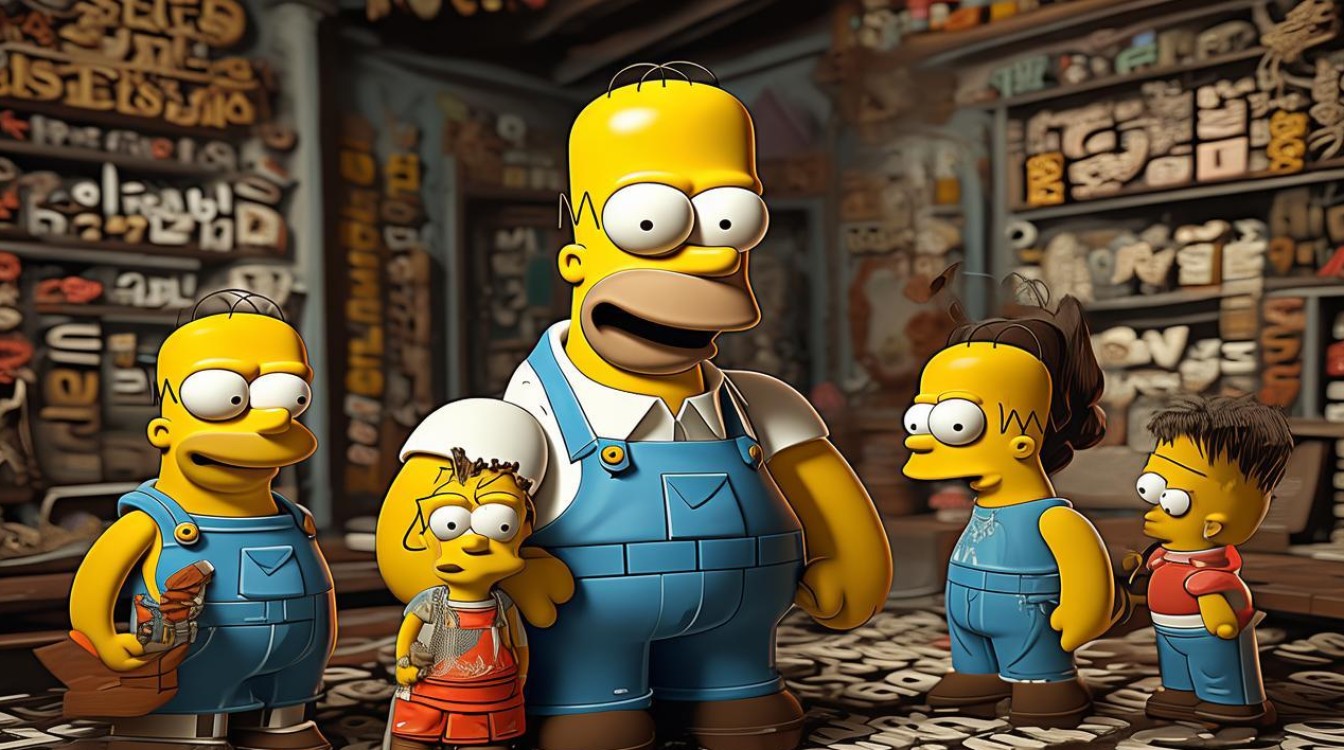For over three decades, The Simpsons has been a cultural phenomenon, blending sharp satire with unforgettable humor. Beyond its iconic characters and storylines, the show has introduced countless English words and phrases into everyday language. Whether you're learning English or just a fan, these linguistic gems offer insight into the show’s wit and societal commentary.

"D’oh!"
Homer Simpson’s exasperated catchphrase is perhaps the most recognizable word from the series. Officially added to the Oxford English Dictionary in 2001, "D’oh!" expresses frustration or sudden realization. Its simplicity and universality make it a staple in pop culture.
"Meh"
This indifferent shrug of a word gained mainstream popularity thanks to The Simpsons. First uttered by Bart in the 1994 episode "Sideshow Bob Roberts," "meh" perfectly encapsulates apathy. It’s now widely used to express mild disinterest.
"Excellent..." (Mr. Burns’ Tone)
Mr. Burns’ drawn-out, sinister delivery of "Excellent..." has become synonymous with villainous glee. The word itself is ordinary, but the context—often paired with finger-tapping—turns it into a meme-worthy moment.
"Eat My Shorts"
Bart’s rebellious slogan, inspired by 1980s teen culture, became a defining phrase of early Simpsons episodes. While outdated today, it reflects the show’s ability to capture youthful defiance.
"Cowabunga!"
Though originally from Teenage Mutant Ninja Turtles, Bart’s enthusiastic use of "Cowabunga!" cemented its association with carefree excitement. The word embodies the show’s playful energy.

"Don’t Have a Cow, Man"
Another Bart classic, this phrase dismisses overreactions with laid-back coolness. Its grammatical incorrectness ("a cow") adds to its charm, showcasing the show’s knack for subverting language norms.
"Hi-Diddly-Ho, Neighborino!"
Ned Flanders’ cheerful greeting is a mix of folksy warmth and absurdity. The exaggerated friendliness, paired with his unique vocabulary ("neighborino"), highlights the character’s wholesome yet quirky persona.
"Sacrilicious"
A portmanteau of "sacrilegious" and "delicious," coined by Homer to describe his donut cravings. This playful blending of words exemplifies the show’s clever wordplay.
"Steamed Hams"
From the infamous "Skinner and the Superintendent" scene, "steamed hams" refers to a hilariously botched dinner cover-up. The phrase has evolved into internet shorthand for absurd lies.
"Bort"
A recurring joke about a poorly stocked license-plate kiosk, where Bart discovers his name is sold out, leaving only "Bort." The absurdity of the name turned it into a cult favorite.

"Smrt"
Lisa’s ironic misspelling of "smart" in "Bart Gets an F" became a self-deprecating meme. It’s a testament to the show’s ability to turn even mistakes into enduring humor.
"Glavin"
Homer’s nonsensical exclamation, often used in place of "God" or "goodness," showcases the show’s talent for creating faux-swear words that feel oddly natural.
"Cromulent"
Introduced in "Lisa the Iconoclast," this fabricated word means "acceptable" or "legitimate." Its usage in a faux-educational context makes it a clever satire of linguistic pretension.
"Embiggen"
Another invented word from the same episode, meaning "to enlarge." Like "cromulent," it parodies how language evolves through repetition—even if the terms are made up.
"Yoink!"
The sound effect for stealing, popularized by Homer. Its onomatopoeic quality makes it instantly recognizable, often used in comedic theft scenarios.

Why These Words Matter
The Simpsons didn’t just entertain; it shaped language. From dictionary entries to internet slang, these words demonstrate how media can influence communication. The show’s writers mastered the art of blending humor with linguistic creativity, ensuring their phrases resonated beyond the screen.
For English learners, these terms offer a fun way to explore informal speech and cultural references. For fans, they’re a nostalgic trip through Springfield’s quirks. Either way, The Simpsons proves that even the silliest words can leave a lasting legacy.
The next time you mutter "D’oh!" or shrug with a "meh," remember—you’re channeling a piece of television history. And if anyone questions your vocabulary, just tell them it’s perfectly cromulent.





